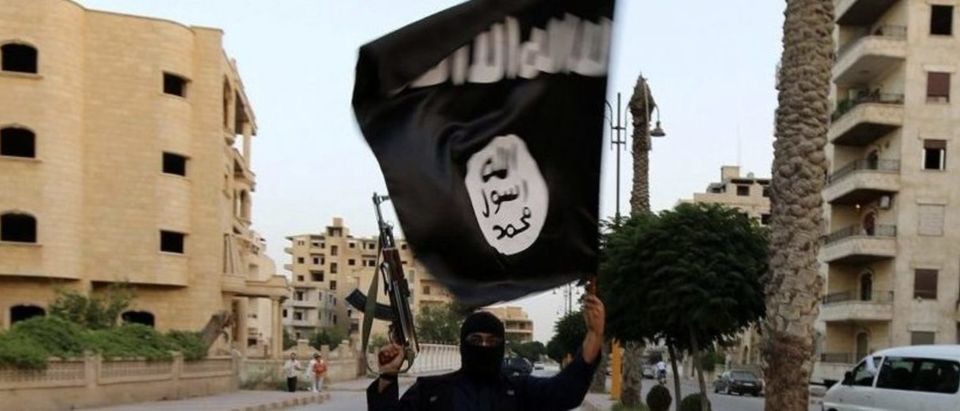We are at war with radical Islamic terrorism. The recent increase in attacks around the world underscores the ineffectiveness of current counterterrorism efforts. A strategy combining both hard and soft power is the only way to eradicate this threat. A new focus must be made on soft power to attack the root causes or stimuli of Islamic radicalism, which in turn leads to extremist terrorism and violence. To achieve this, Islam will have to undergo a reformation to reconcile itself with the 21st century world. Eliminating blasphemy laws and all consideration of the applicability of Sharia Law in the secular realm, as opposed to the religious, are milestone barometers of progress in this evolution.
Islamic extremism has extracted a huge price in life, freedom, and money from all peaceful and law abiding peoples. In the past year alone, Islamic terrorists have claimed responsibility for attacks in the United States, the United Kingdom, France, Germany, Sweden, and the Philippines, and repeatedly massacring Christians in Egypt. Further, the Islamic State of Iraq and Syria (ISIS) continues to destabilize the Middle East in their attempt to establish a caliphate in the region.
The increasing frequency of attacks proves the severity of challenges faced by the West to deter already radicalized terrorists. Classifying the terrorists as enemy combatants and restricting their movement in and out of Iraq and Syria would impede migration of the “returnee terrorists” to the West. Those who interact with terrorists and return home should be prosecuted for treason.
Further, an intensive vetting process is necessary for refugees and asylum seekers from countries that have a history with Islamic extremism. The United States and other Western countries need to know exactly who is entering their territory. One would think this fundamental aspect of national sovereignty would be obvious. Until proper procedures are put in place, including, in the United States, a massive overhaul of our leaky, unenforceable visa system, a travel ban from “at risk” countries is a reasonable precaution to assure that no extremists reach the West and to contain the threat.
Additionally, we need to set political correctness aside and have an honest discussion about religious extremism. We cannot turn a blind eye to those who are attending preaching’s of radical Islam. Embedding surveillance resources within communities where there is cause to believe Muslim individuals may have become radicalized is in our national security interest. These measures of increased surveillance, especially concerning social media, of people who follow or attend the preaching of radical Imams, can help expose the more “home grown” radicals and potential “lone wolves.”
Terrorism funding must also be addressed. Significant, coordinated efforts to deprive Islamic terrorists of funding for their enterprise have produced results and should be expanded as much as possible. For far too long ISIS was able to steal oil in Iraq and sell it, and operate a gas plant in Syria producing fuel for profit. We were in effect enabling our enemies.
Combined with the hard power of military force, containment, vetting, surveillance, and defunding terrorism, soft power diplomacy is another powerful tool to prevent radicalization by undermining the root causes of the ideology, and to offer alternatives to extremist messaging. Since Islam is used to justify terrorism, it will be incumbent on Muslim leaders to clearly and loudly denounce the use of religion to justify violence, the perversion of their faith by radical terrorists, and to articulate a concept of Islam which is tolerant of others and is in consensus with the modern world. In short, as Muslim scholar Dr. Sayyid Syeed has avowed, Islam needs its own Nostra Aetate. This concept was originally articulated by Pope Benedict XVI in his famous Regensburg address, calling on Islam to shed the call of the Koran “to spread by the sword the faith” the Prophet preached, and co-exist in the 21st century.
Since Regensburg some Muslim leaders have spoken up. In Jordan, Lebanon and Saudi Arabia, government officials and Islamic scholars have stressed the need to fight the underlying ideology of radical Islam and have called for moderate reforms within Islam. Muslim leaders need to be encouraged to make more like-minded comments to offer an alternative to extremist messaging and help turn people away from radical beliefs.
In May, during President Trump’s historic visit, Saudi Arabia launched a new Global Center for Combating Extremist Ideology, which will monitor and counter messaging from ISIS and other radical groups and develop tolerant Islamic narratives. Saudi Arabia also pledged to disrupt terrorism financing. Commitments like this from Islamic countries are essential to tackle extremism.
Ultimately, the litmus test for tolerance and successful moderation and modernization of Islam is elimination of blasphemy laws and limitation of the Koran as a secular governance text. Blasphemy laws prohibit free expression of religion and render harsh punishment, even death, to anyone who however obliquely criticizes Islam or the Prophet. Eighteen out of the twenty countries in the Middle East and North Africa have blasphemy laws, as do the majority-Muslim countries of Indonesia, Malaysia and Pakistan. Likewise, at some point, interpretation of the Koran in these countries will need to be moderated and its influence confined to the religious sphere.
The existential challenge to the West which began with attacks on embassies in Lebanon in 1983 and Kenya in 1998 continues this week in London and Paris. It must be confronted realistically and without reservation or equivocation, by all means, including both hard and soft power. Like Israel, President Trump understands the threat of Islamic terrorism and speaks clearly about it. Our Sunni allies are about to add their voices and resources to this struggle. People in the developed Western world need to back them up.
Francis Rooney is the U.S. Representative for Florida’s 19th congressional district. He serves on the House Foreign Affairs Committee, and previously served as U.S. Ambassador to the Holy See under President George W. Bush from 2005 to 2008.


